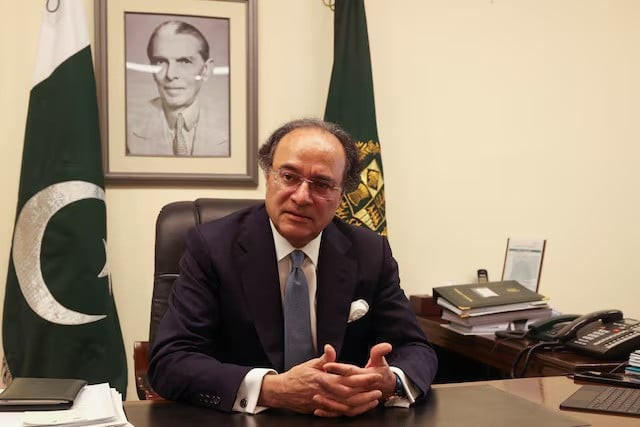Finance minister unveils new incentives for foreign investors amid push for external financing
Aurangzeb emphasises government’s commitment to improving the investment climate in Pakistan

Finance Minister Muhammad Aurangzeb announced new policy measures on Thursday aimed at enhancing Pakistan's investment environment and attracting foreign investors, according to Radio Pakistan.
The finance minister chaired a review meeting in Islamabad with representatives from joint venture investment firms, including Pak-Brunei Investment Company Limited and Saudi-Pak Industrial and Agricultural Investment Company.
The discussion focused on fostering a supportive environment for private sector investment and highlighted the significant role these ventures play in driving economic growth.
Aurangzeb emphasised the government’s commitment to improving the investment climate in Pakistan. This comes as the South Asian nation seeks to secure a $7 billion bailout from the International Monetary Fund (IMF) and faces ongoing security issues.
During the meeting, the CEO of Pak-Brunei Investment Company Limited presented an overview of the company’s contributions to enhancing economic cooperation between Pakistan and Brunei, particularly in the industrial and agricultural sectors.
The CEO of Saudi-Pak Industrial and Agricultural Investment Company also detailed the company's development initiatives, which focus on Islamic finance, food security, digital finance, and agriculture.
The discussion covered various operational aspects of these companies, including investment strategies, performance metrics, and challenges faced.
Both companies shared their successes and obstacles, seeking policy support to address growth impediments and explore future investment opportunities through government-to-government collaborations.
Aurangzeb praised the strategic implementation of Saudi Arabia’s Vision 2030 and expressed Pakistan’s interest in adopting similar strategies to achieve its economic goals.
He has been actively engaging with foreign banks and companies, including recent meetings with Dubai Islamic Bank and Mashreq Bank, to explore investment opportunities and discuss the country’s economic outlook.
The government is also negotiating with Saudi Arabia, the United Arab Emirates, and China to meet its financial needs under the IMF program.
While past support from these allies and IMF financing has helped address external financing requirements, recent tough IMF conditions, such as increased agricultural taxes and higher electricity prices, have raised concerns about their impact on Pakistan’s poor and middle class.



















COMMENTS
Comments are moderated and generally will be posted if they are on-topic and not abusive.
For more information, please see our Comments FAQ